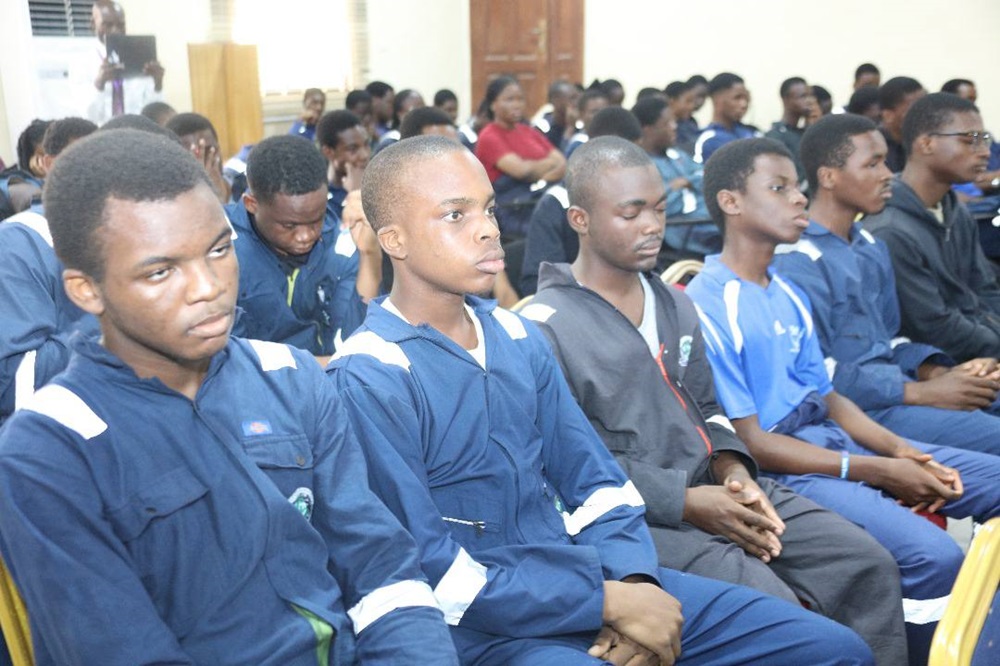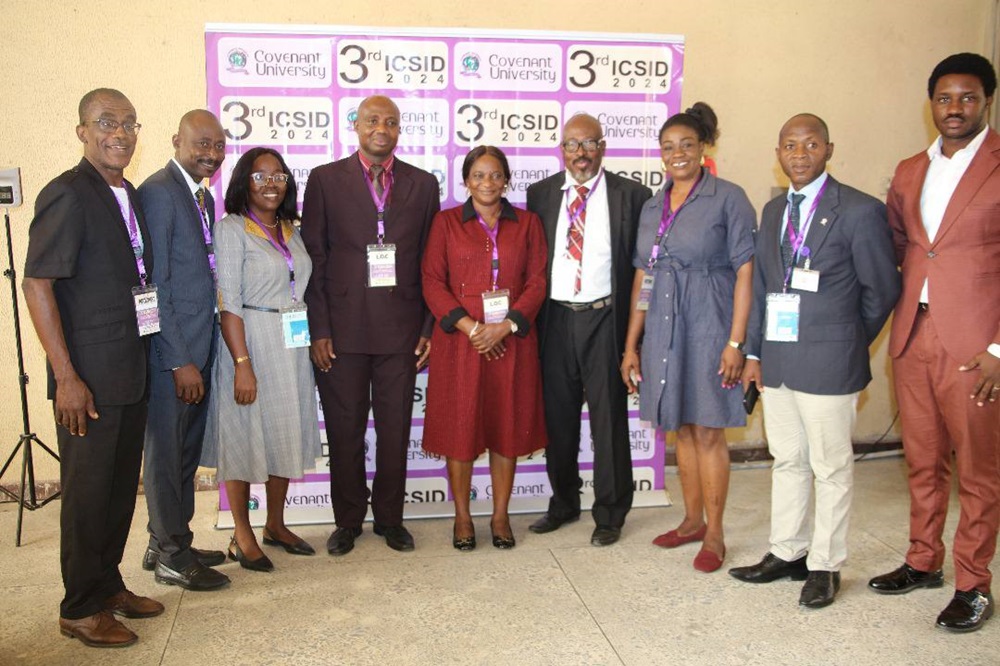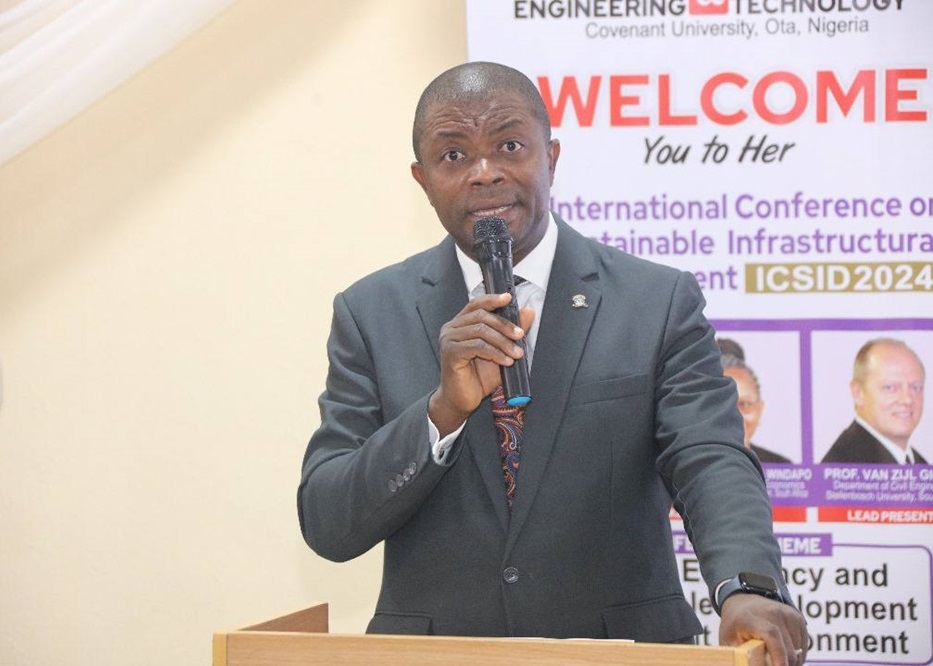Covenant University’s Vice-Chancellor, Professor Abiodun H. Adebayo, has issued a clarion call for researchers across African universities to unite in tackling the continent's growing energy crisis. He made this appeal at the opening of the International Conference on Sustainable Infrastructure Development (ICSID 2024), co-hosted by the university’s Department of Civil Engineering and Building Technology program. The conference was themed, ‘Energy Efficiency and Sustainable Development in the Built Environment.’
In his address, Professor Adebayo emphasized the urgent need for interdisciplinary collaboration, particularly in light of the global energy challenges that disproportionately affect Africa. He highlighted the crucial role that African academic and research institutions must play in developing comprehensive, sustainable solutions. "Africa’s future development is inextricably tied to our ability to work together across disciplines," he remarked, underscoring the importance of innovative research to solve energy issues plaguing the continent.
Adebayo also pointed to the persistent power shortages faced by many Nigerian universities as emblematic of the broader crisis. He urged researchers to rethink their approaches, advocating for cross-disciplinary projects that integrate insights from multiple fields. Using Covenant University as a model, he noted how collaboration between the Civil Engineering and Building Technology departments has fostered ground-breaking research. "The era of siloed research is over," he declared, "the future of academic inquiry lies in the fusion of ideas across fields."
Professor Adebayo also commended the conference organizers for their efforts and called for further collaboration from other University departments.
The Head of the Department, Civil Engineering, Professor Olatokunbo Ofuyatan, equally solicited for more collaborative efforts from participants of the conference in ‘sharing of ideas and learning from each other, to drive progress in the quest for the actualization of sustainable development goals.
Professor Ofuyatan used the moment to thank all participants for finding the time to grace the conference with their esteemed presence but charged that they learn from each other, and drive progress in the quest for the actualization of sustainable development goals for a better Nigeria and Africa.
She concluded that the conference theme reflects the dynamic and rapidly evolving nature of the Built Environment and it has curated a program that will challenge their thinking, so as to inspire new ideas, and equip them with practical tools to tackle the challenges ahead.
Among the keynote speakers, Professor Van Zijl Gideon of Stellenbosch University, South Africa, discussed the use of advanced 3D printing technology in infrastructure development.
He explained that 3D printing not only cuts costs, but also reduces environmental impact and labor demands, offering a sustainable alternative to traditional construction methods. His presentation, titled "3D Print Concrete Sustainability," highlighted the potential of this technology to revolutionize South Africa's built environment.
Professor James O.B. Rotimi from Massey University, New Zealand, in his speech on "Enhancing Sustainable Development in Nigeria through Building Products, Processes, and Technology," echoed the call for innovative solutions in construction. He stressed the importance of leveraging new technologies to improve efficiency and sustainability in the Nigerian context.
Professor Abimbola Windapo of the University of Cape Town, South Africa, added further insights with her presentation on ‘Transforming the Construction Landscape: Gaps and Sustainable Solutions,’ focusing on the challenges and opportunities in Africa's construction industry.
The conference drew notable scholars from across the African Continent and the diaspora, bringing together experts to address critical issues in the African construction and energy sectors. It is expected that a communiqué from the event will provide valuable guidelines for future research and policy development in these fields



